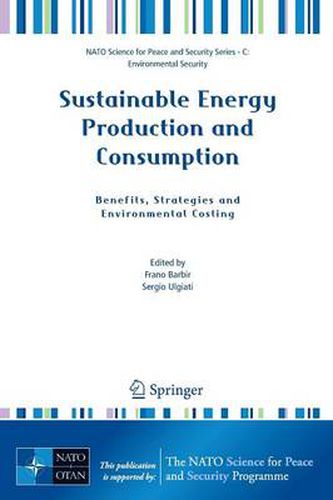Readings Newsletter
Become a Readings Member to make your shopping experience even easier.
Sign in or sign up for free!
You’re not far away from qualifying for FREE standard shipping within Australia
You’ve qualified for FREE standard shipping within Australia
The cart is loading…






This title is printed to order. This book may have been self-published. If so, we cannot guarantee the quality of the content. In the main most books will have gone through the editing process however some may not. We therefore suggest that you be aware of this before ordering this book. If in doubt check either the author or publisher’s details as we are unable to accept any returns unless they are faulty. Please contact us if you have any questions.
Energy and environmental security are major problems facing our global economy. Fossil fuels, particularly crude oil, are confined to a few regions of the world and the continuity of supply is governed by dynamic political, economic and ecological factors. These factors conspire to force volatile, often high fuel prices while, at the same time, environmental policy is - manding a reduction in greenhouse gases and toxic emissions. Yet incr- sed growth and demand for welfare by developed and developing countries are placing higher pressure on energy resources. In particular, a large fraction of new consumers in developing countries already reached a purchasing power high enough as to be able to access to commodity and energy markets worldwide, thus boosting energy consumption and competition for all kinds of resources. Such a trend, although in principle may represent a progress towards diffuse welfare and wealth as well as much needed equity, is at present contributing to a rush for the appropriation of available resources which are directly and indirectly linked to energy and may contribute to planetary instability if it is not adequately understood and managed. A coherent energy strategy is required, addressing both energy supply and demand, security of access, development problems, equity, market dy- mics, by also taking into account the whole energy lifecycle including fuel production, transmission and distribution, energy conversion, and the impact on energy equipment manufacturers and the end-users of energy systems.
$9.00 standard shipping within Australia
FREE standard shipping within Australia for orders over $100.00
Express & International shipping calculated at checkout
Stock availability can be subject to change without notice. We recommend calling the shop or contacting our online team to check availability of low stock items. Please see our Shopping Online page for more details.
This title is printed to order. This book may have been self-published. If so, we cannot guarantee the quality of the content. In the main most books will have gone through the editing process however some may not. We therefore suggest that you be aware of this before ordering this book. If in doubt check either the author or publisher’s details as we are unable to accept any returns unless they are faulty. Please contact us if you have any questions.
Energy and environmental security are major problems facing our global economy. Fossil fuels, particularly crude oil, are confined to a few regions of the world and the continuity of supply is governed by dynamic political, economic and ecological factors. These factors conspire to force volatile, often high fuel prices while, at the same time, environmental policy is - manding a reduction in greenhouse gases and toxic emissions. Yet incr- sed growth and demand for welfare by developed and developing countries are placing higher pressure on energy resources. In particular, a large fraction of new consumers in developing countries already reached a purchasing power high enough as to be able to access to commodity and energy markets worldwide, thus boosting energy consumption and competition for all kinds of resources. Such a trend, although in principle may represent a progress towards diffuse welfare and wealth as well as much needed equity, is at present contributing to a rush for the appropriation of available resources which are directly and indirectly linked to energy and may contribute to planetary instability if it is not adequately understood and managed. A coherent energy strategy is required, addressing both energy supply and demand, security of access, development problems, equity, market dy- mics, by also taking into account the whole energy lifecycle including fuel production, transmission and distribution, energy conversion, and the impact on energy equipment manufacturers and the end-users of energy systems.